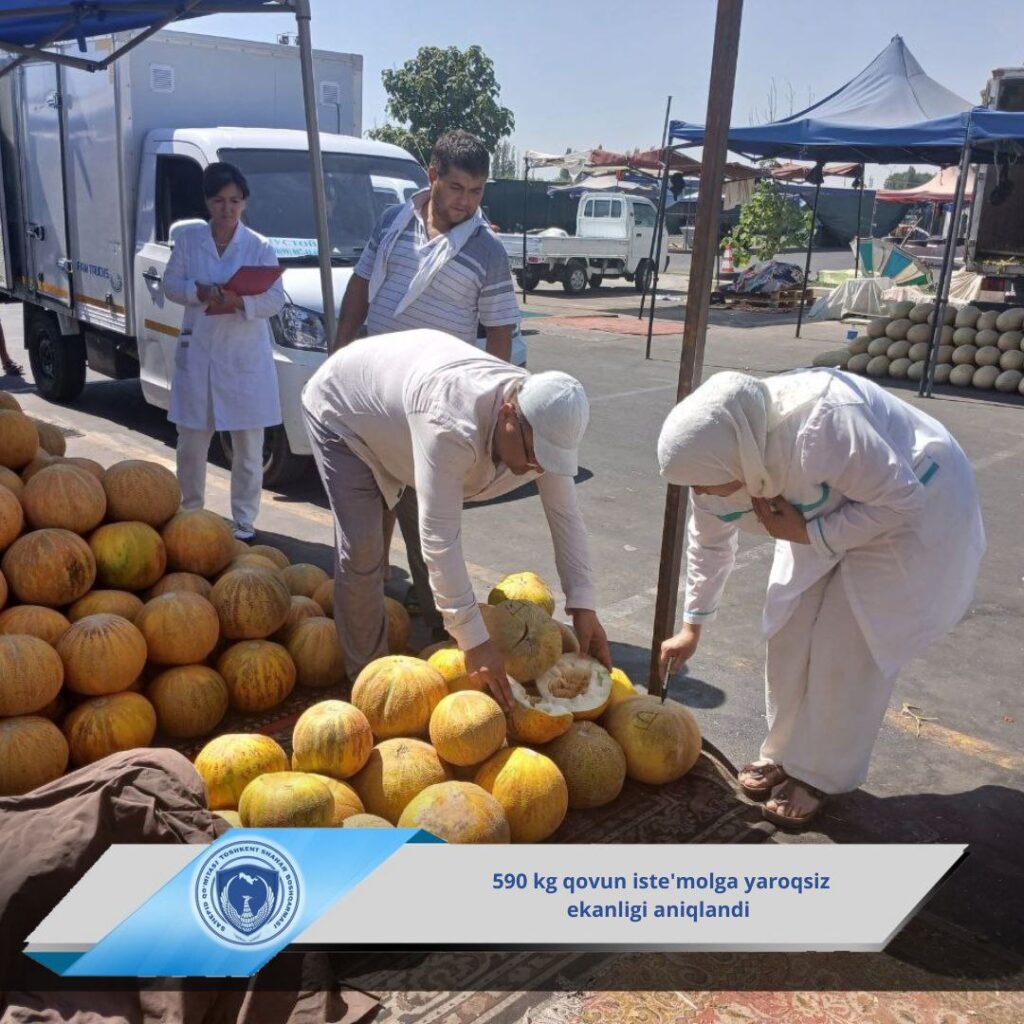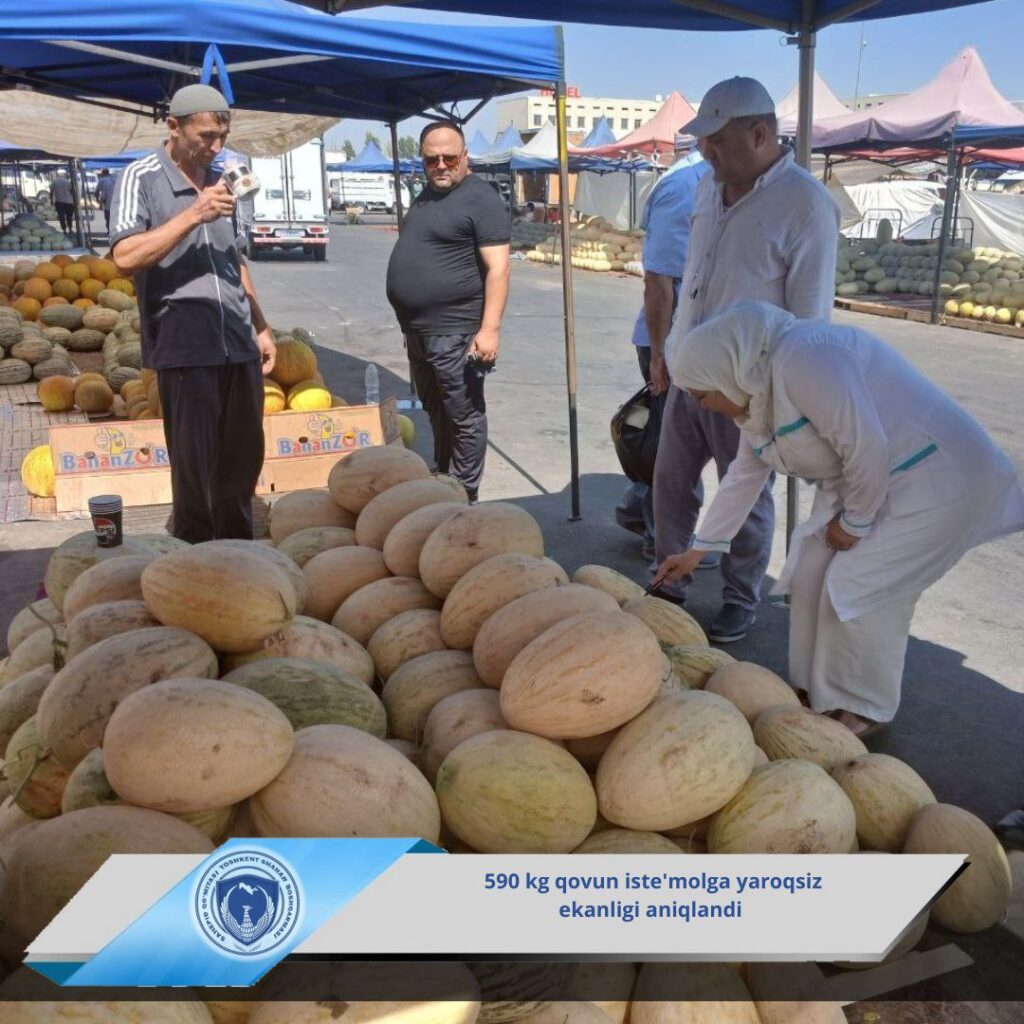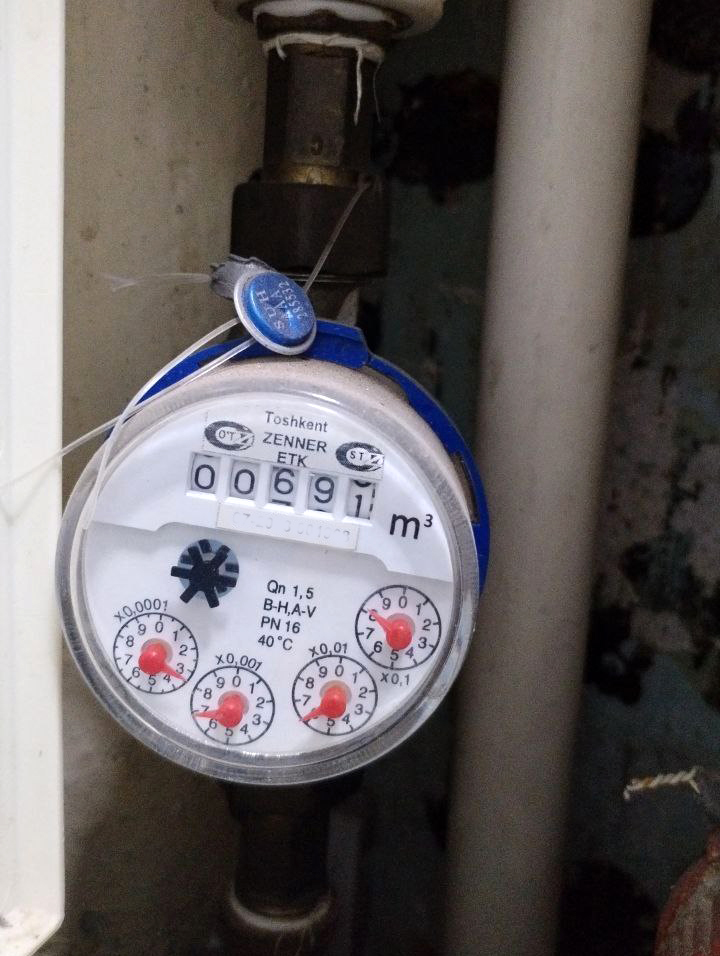This article is also available in:
Русский (Russian)
Uzbek
At one of Tashkent’s largest markets, Food City, specialists from the Sanitary and Epidemiological Service (SES) identified over half a ton of melons containing dangerously high levels of nitrates. Following the inspection, it was determined that 590 kg of melons did not meet safety standards and were subsequently removed from sale and disposed of.


During the market inspection, SES specialists found that the nitrate levels in some melons significantly exceeded the permissible limits. According to sanitary rules and regulations, the nitrate content in melons should not exceed 90 mg per kilogram, and in watermelons, it should not exceed 60 mg per kilogram. Exceeding these limits can lead to serious health consequences for consumers.
This incident once again underscores the need for thorough quality control of products at Tashkent markets, especially during the summer season when melons and watermelons are in high demand. Consumers should be aware of potential risks and take measures to protect their health and the health of their loved ones.
What Are Nitrates?
Nitrates are salts of nitric acid commonly used in agriculture to accelerate plant growth and increase yields. However, excessive accumulation of nitrates in fruits and vegetables can pose a serious health risk to humans.
Once inside the body, nitrates can convert into nitrites, which inhibit the blood’s ability to transport oxygen, leading to oxygen starvation of tissues and organs. High concentrations of nitrates can cause symptoms such as headaches, nausea, weakness, and in severe cases, lead to the development of methemoglobinemia, which poses a serious threat to life, especially for children, pregnant women, and individuals with weakened immune systems.
How to Detect Nitrates in Food?
Unfortunately, it is impossible to visually determine the nitrate content in products. However, there are several methods that can help reduce the risk of consuming nitrates:
- Nitrate Testers. Portable devices are available on the market today that allow for quick measurement of nitrate levels in foods.
- Soaking and Peeling. Soaking fruits and vegetables in cold water for 15-20 minutes before consumption can reduce nitrate levels. It is also important to thoroughly peel the skin.
- Buying from Trusted Vendors. Try to purchase products from reliable sellers who adhere to all growing norms and standards.
Previously, we reported that the SES advised Uzbekistan citizens not to buy watermelons and melons from roadside stalls and vendors. These melons absorb toxic substances from vehicle exhaust fumes and can pose a serious health risk.
The text has been translated by AI. For more accurate information, please refer to the Russian version of the article.











